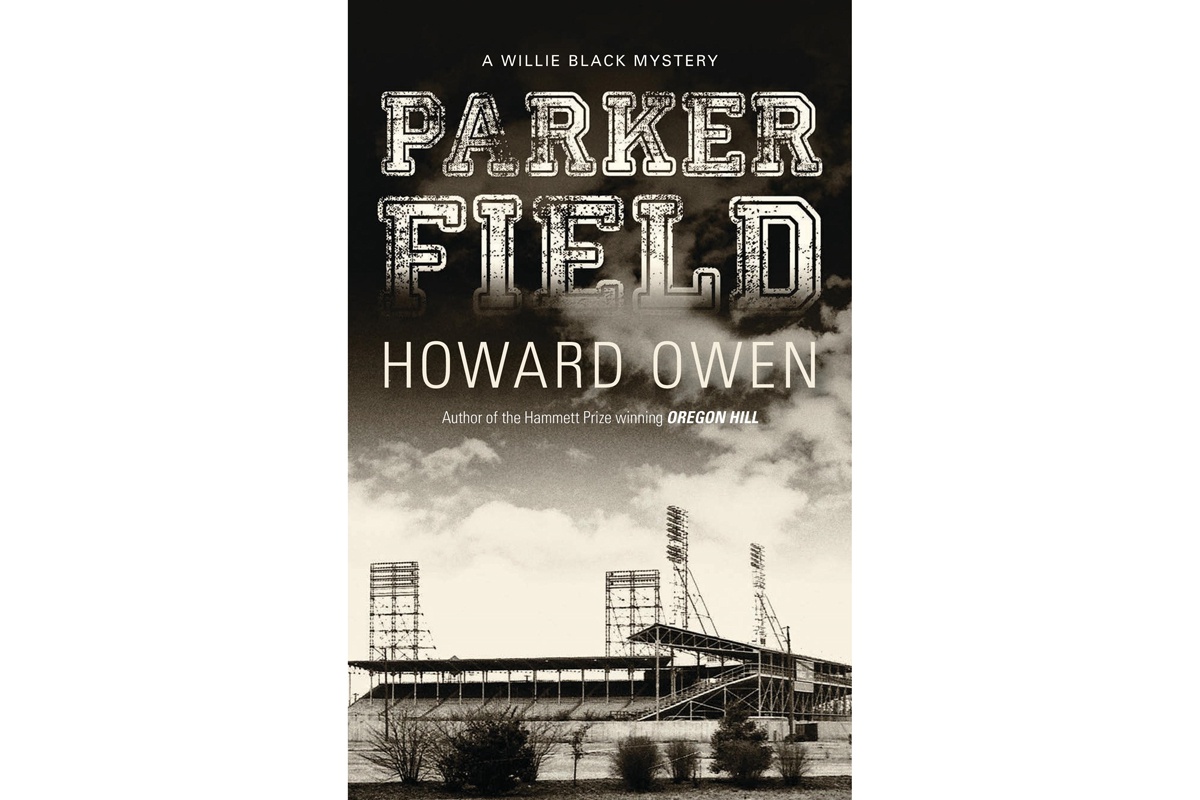By the Book: 'Parker Field' a Good Yarn, Even if It Lacks for Mystery

It’s always a pleasure to pick up a Willie Black novel by Richmond, VA, former newspaperman Howard Owen. The latest one is Parker Field (Permanent Press). Owen invests Willie Black, his older, savvy, smart-mouthed, self-styled sleuth/reporter, with so many old-time journalistic traits that, even though the books are set in the present, the reader feels a nostalgic connection to a time before online ruled; a time when local human interest stories attracted seasoned pros, and when the best reporters (usually ornery) had beats and cared about doing well and doing good. Willie is old fashioned in trusting his instincts. He pursues leads on his own time—even though it earns him no brownie points. He attends voluntary meetings at his paper, where “no refreshments are served,” because he enjoys sparring with his so-called superiors as they cave to abolishing pensions. He’s got the sarcastic pushback gene. And heart.
For all of his unfortunate dealings with women (three divorces, a troubled relationship with his daughter, a tenuous relationship with Peggy his pothead mother, commitment issues with his current girlfriend) and his history of problem drinking (he’s tried A.A. but it’s not for him), Willie manages to attract and keep friends and the grudging respect of colleagues. “I promise to do better. Promising to do better is one of the things I do best.” Willie Black is indeed a lively and engaging narrator—which is itself a good reason to read Parker Field—and the book begins with a gunshot, plunging us right into the action. But Willie easily gets sidetracked into musing on relationships. The man who got shot, Les Hacker, the kindest man in the world, is Willie’s stepfather of sorts—Hacker has been living with Peggy. Hacker was also a ballplayer for the old Richmond Vees, a now-defunct Yankees’ Triple–A farm team. The Vees played at Parker Field in Richmond—hence the title of the book. Willie is eager to do a story on the Vees, though at first he doesn’t know that his reporting will connect him to Hacker’s shooter. It turns out that six of the nine Vees are dead, and that five of those “at least did not go gently into that good night.” As one chapter ending puts it, “Somebody’s keeping score.” Willie also discovers that “Being a psychopath is never having to say you’re sorry.”
Parker Field is the third in Owen’s Willie Black mystery series, and it may become a bit confusing to a new reader because the eccentric characters who surround Willie are not fully explained when they’re introduced. And Willie’s mixed-race parentage isn’t covered in this third go-round (his late father, who was black, took off). Also left out are his bygone days as a police reporter on the night beat—a part of his backstory that explains his continued cred on the streets. Then again, it’s easy to be diverted by Willie’s way with words: A woman kicks out a guy for “doing the horizontal hula with another party.” A denizen of Willie’s apartment house has a veritable art gallery in his living area, with special lighting “to showcase modern shit that, for all I know, could be hanging upside down.” By contrast, the walls of Willie’s own apartment “don’t have paintings. Our walls need painting.” And no doubt, the author’s (and Willie’s) sympathies for the working class, especially women, will prove endearing.
Although it becomes pretty obvious by the half-way mark (if not earlier) why Hacker was shot, and maybe by whom, Parker Field has so many interesting baseball sidebars going on, as well as pointed societal critiques, that readers will remain entertained. “Suburbanites love to make jokes about Richmond’s homeless population,” Willie observes, but he knows from stories he’s done over the years “that a lot of them are residing in our parks because those same suburbs gave them a one-way ticket here.” The novel also contains some timely comments: The hopeless case who’s arrested for Hacker’s shooting is a vet—“definitely a candidate for a little post-traumatic stress, and I know how diligent the VA has been in getting these guys help.” In another observation, Willie compares his habit of keeping information to himself until he can be sure he’s right to “the way the Koch brothers hoard money.”



